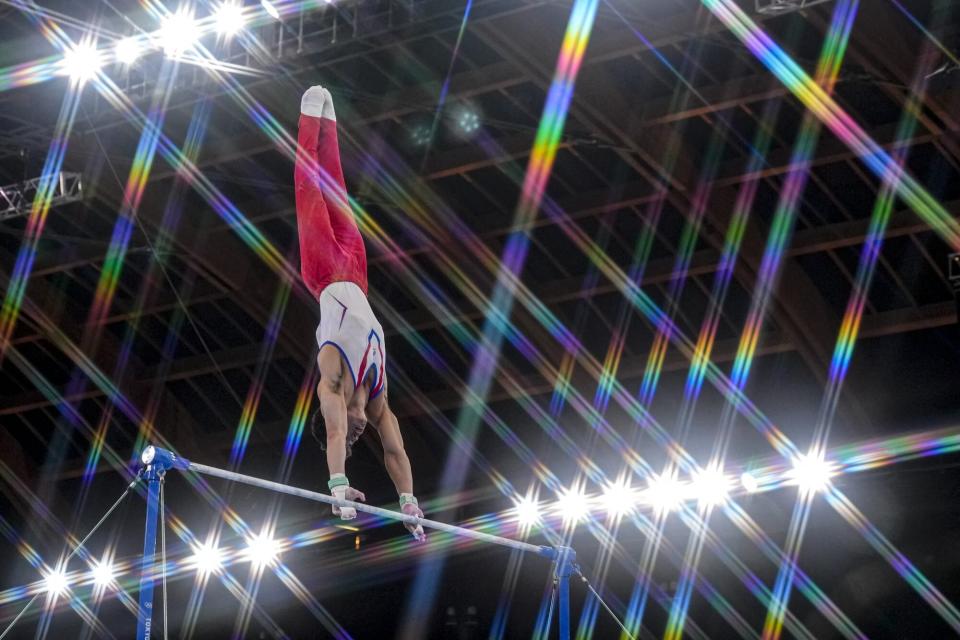What Is the ROC? Why Russia Can't Display Their Flag or Play Their Anthem at the Olympics

This story was originally published during the Tokyo Olympic Games last summer and has been updated.
For the third Olympics in a row, Russian athletes are not competing under the name or flag of their home country and their national anthem does not play at medal ceremonies.
Instead, because of an anti-doping penalty partially upheld by the International Court of Arbitration for Sport in 2020, the Russians are competing for the "Russian Olympic Committee."
The acronym, ROC, has appeared often on the scoreboard and on TV screens during the Beijing Winter Games.
The ROC is the name of the national organization in charge of organizing the country's Olympic athletes every two years, analogous to the United States Olympic & Paralympic Committee (USOPC). But it is not supposed to represent the country as a whole.
If it all sounds confusing and technical, that's because it is — the result of a years-long tangle of punishments, appeals and court rulings in the wake of reports that Russia was engaged in sometimes elaborate state-sponsored doping at the 2012 and 2014 Olympics.
The Kremlin has strenuously denied these accounts, which have been documented by the World Anti-Doping Agency (and were also the subject of the Oscar-winning documentary Icharus).
RELATED: U.S. Pole Vaulter Sam Kendricks Positive for COVID-19 Ahead of Track and Field Start at Olympics

Photo by Lu Lin/CHINASPORTS/VCG via Getty Images Russian athletes competing for the Russian Olympic Committee march in the opening ceremony of the Tokyo Summer Games.
"It is impossible to know just how deep and how far back this conspiracy goes," the WADA's lead investigator on the scandal, Richard McLaren, said in 2016, according to the Associated Press.
"For years, international sports competitions have unknowingly been hijacked by Russians. Coaches and athletes have been playing on an uneven field," McLaren said at the time. "Sports fans and spectators have been deceived."
Though Russia wasn't banned from the 2016 Games in Rio de Janeiro, its athletes were subject to heightened scrutiny. Further investigation led the country to be formally booted from the 2018 Winter Games. Instead, their competitors were known as the Olympic Athletes from Russia.
In 2019, after WADA described a coverup by Russian officials, the agency said that the country should be forced to compete as neutral athletes for four years.
However, in 2020 the Court of Arbitration for Sport (CAS) cut that penalty in half even as it took pains to insist it was not validating "the conduct of [Russia's anti-doping agency] or the Russian authorities."
RELATED: See the Most Jaw-Dropping Pool Photos of the Swimmers During the Tokyo Olympics

Photo by Vincent Kalut/Photonews via Getty Images Russian athletes competing for the Russian Olympic Committee march in the opening ceremony of the Tokyo Summer Games.
The court affirmed wrongdoing found by WADA but said it had "considered matters of proportionality and, in particular, the need to effect cultural change and encourage the next generation of Russian athletes to participate in clean international sport."
A number of Russian athletes also argued they should not be tainted by the conduct of the state, and WADA said it had not found evidence the ROC was involved, the AP reported.
There was yet further controversy when the ROC athletes decided to compete at the Tokyo Games using their national colors, over WADA's objections.

Photo by Fred Lee/Getty Images Russian gymnast Artur Dalaloyan competes on parallel bars during the men's all-around final at the Tokyo Olympic Games on Wednesday.
"We at WADA remain disappointed that CAS has decreased the level of the sanctions from four years to two years and that CAS allows them to compete Russian athletes with the colors of the flag in the uniforms," the WADA President Witold Bańka said about the CAS ruling, according to USA Today.
The Russians had also suggested using "Katyusha," a folk song, in Tokyo in place of their anthem but the CAS rejected that, the AP reported.
A compromise was struck with Pyotr Tchaikovsky's Piano Concerto No. 1.
To learn more about Team USA, visit TeamUSA.org. Watch the Tokyo Olympics now on NBC.

 Yahoo Finance
Yahoo Finance 